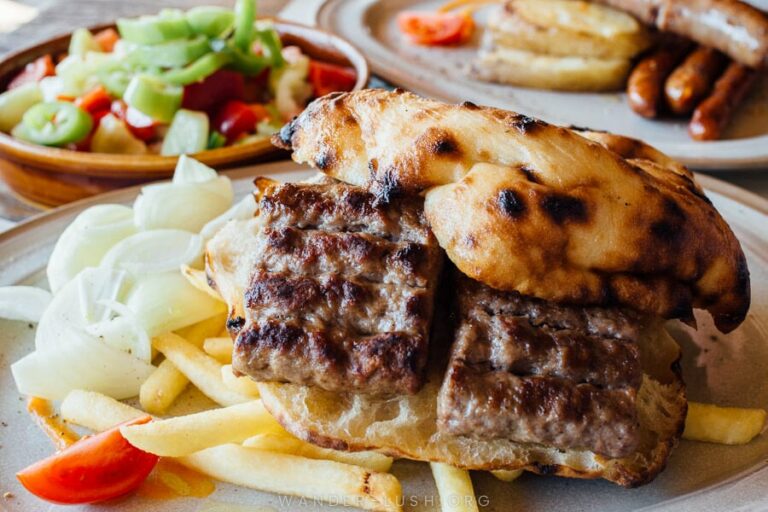Introduction: Bosnian Cuisine
Bosnian cuisine is a blend of Mediterranean, Balkan, and Ottoman influences, resulting in a rich and flavorful cuisine. The dishes are often hearty and filling, with meat and vegetables being staple ingredients. Bosnian cuisine is also known for its use of spices, which adds to the unique taste of each dish.
Basic Ingredients in Bosnian Cuisine
The basic ingredients in Bosnian cuisine include meat (beef, lamb, and poultry), vegetables (such as onions, potatoes, and peppers), beans, dairy products, and bread. Bosnian cuisine also heavily relies on grains such as rice and polenta, as well as fruits and nuts. The ingredients are typically fresh and locally sourced, which enhances the quality and flavor of the dishes.
Spices Used in Bosnian Cuisine
Bosnian cuisine is known for its use of a variety of spices, including paprika, cumin, black pepper, garlic, and bay leaves, among others. These spices add depth and complexity to the dishes, complementing the flavors of the ingredients. Spices are often used in meat and vegetable dishes, as well as in soups and stews.
Level of Spice in Traditional Bosnian Dishes
While Bosnian cuisine is known for its use of spices, it is not typically considered to be a spicy cuisine. Most traditional Bosnian dishes are seasoned with a moderate amount of spices, which add flavor without overwhelming the palate. However, some dishes, such as cevapi (grilled minced meat), may be served with ajvar, a spicy red pepper relish, for those who prefer added heat.
Regional Variations in Bosnian Cuisine
Bosnian cuisine varies across regions, with different ingredients and flavors being prominent in different areas. For example, in the Herzegovina region, dishes are often centered around meat and dairy products, while in the northern region of Bosnia, dishes are typically heartier and more filling, featuring more grains and vegetables.
Spicy vs. Mild: Common Misconceptions
One common misconception about Bosnian cuisine is that it is always spicy. While Bosnian cuisine does use a variety of spices, not all dishes are spicy. The level of spice can vary depending on the dish and the region it is from. Additionally, many dishes can be adjusted to be either spicier or milder based on personal preference.
How to Adjust Spice in Bosnian Dishes
To adjust the spice level in Bosnian dishes, one can add or reduce the amount of spice used. For example, if a dish is too mild, one can add more paprika or black pepper. On the other hand, if a dish is too spicy, one can reduce the amount of cumin or chili powder used. It is important to note that adjusting the level of spice in a dish can alter its overall flavor profile, so it is best to start with small adjustments and taste as you go.
Conclusion: Exploring the Flavors of Bosnian Cuisine
Bosnian cuisine is a delicious and varied cuisine that has something to offer to everyone. While the cuisine is known for its use of spices, not all dishes are spicy, and the level of spice can be adjusted to personal preference. By exploring the flavors of Bosnian cuisine, one can discover a new and unique culinary experience.

